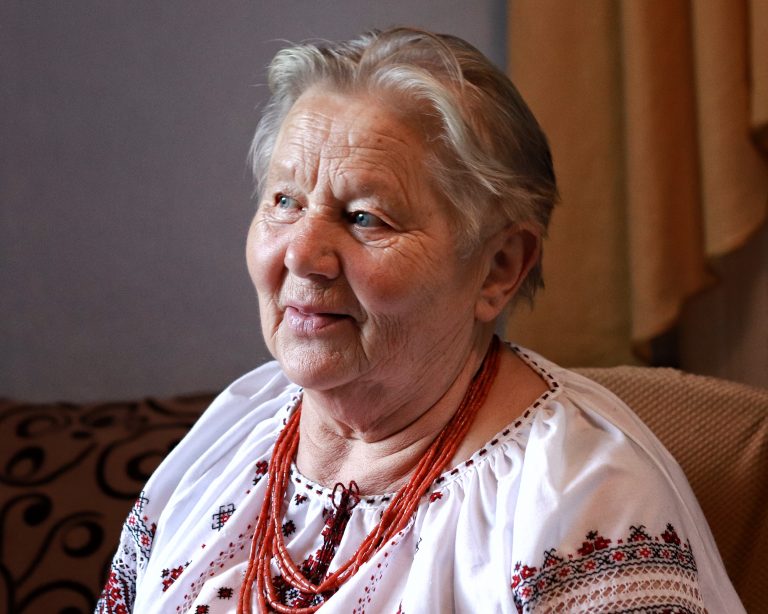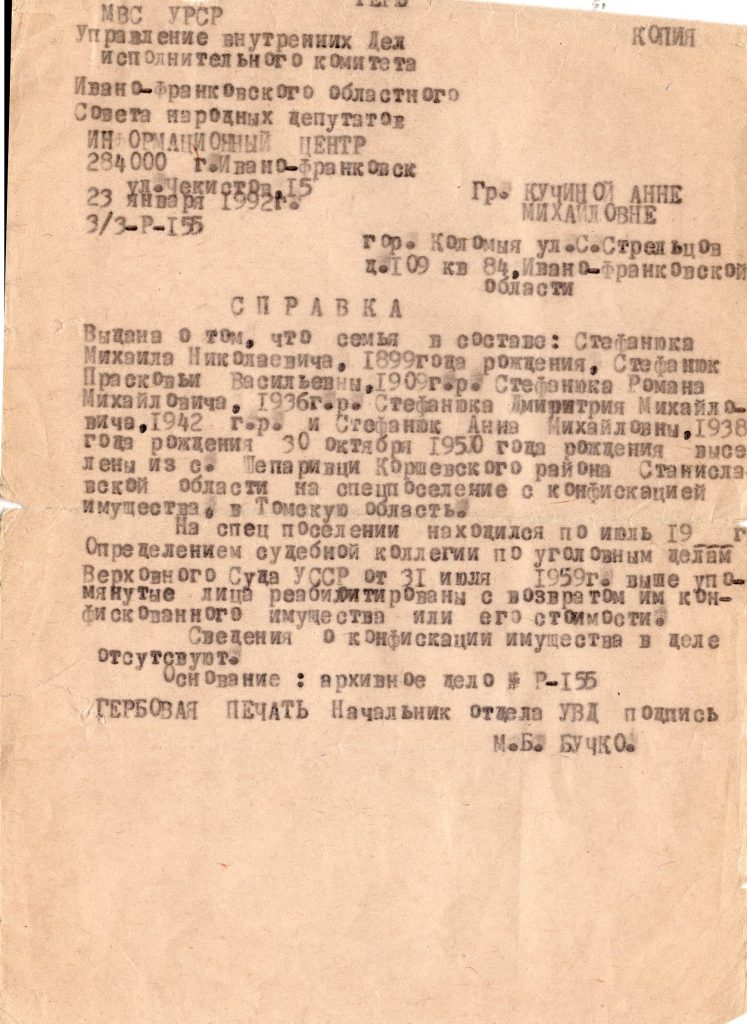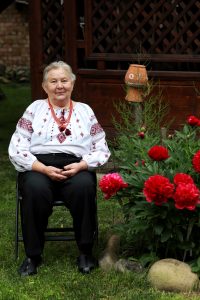Ganna Stefanyuk
“Get you belongings packed, you are moving out”

Born in 1938, village Sheparivtsi (now located in Korshiv District of Ternopil Oblast)
She was born to a peasant family. She was helping her parents since early childhood, this is why she thinks that she never had a normal childhood: “Oh, I was never a child, because I had to work. I never had any childhood as such. We were gathering berries, cranberries, and mushrooms. We were selling all that to get some money to buy bread, and we were pickling mushrooms and eating them in winter.”
As a kid, little Ganna was going to a kindergarten nearby her home. She recalls that “they were baking very tasty bread there”. Then she started attending school in her village. However, forced resettlement ended her education. In September 1950, their family, including three children, were deported to Siberia as “Kurkuls” (wealthy peasants). “Well, they said it was because Dad was a wealthy man. Kurkul as they called it. They were setting up “kolkhoz” (collective farms) and they were taking farms and everything – like we had 50,000 of bricks, wood, a huge barn (…), and all our cattle, so they took it all for the kolkhoz.”
Ganna recalls that day:
“They came from… It was Korshiv Distruct. The KGB came here with rifles, as if they were after some serious criminals. And they told my parents, “Get you belongings packed, you are moving out”. That’s all. We took everything we could and left the rest of our belongings. And we took it (…). Everything we could, mother packed some clothes and shoes for the children, and we brought the bare essentials with us. Everything we were able to take with us.”

Until December 1950, the family was held in the transfer facility in Kolomiya (now Ivano-Frankivsk Oblast), and was then relocated to village Minayevo, Tomsk Oblast, Russian Soviet Socialist Republic. It took two months to get to the East. Other deportees were dying due to unbearable conditions in those cattle wagons. “When they died, their bodies would just be thrown off the wagon.”
Living conditions were very harsh. “They were difficult times because we had nothing to eat. We were given 500 grams of bread for a family of five. You could buy something in the store, and based on their labour day count, parents were given some oat bran, you know, so Mom was baking some pancakes in the wood-burning stove. This is how we were surviving.”
At school that Ganna was attending, children of deportees were stigmatised: “They were bullying us. You know, studying was difficult as everything was being taught in Russian, and we did not speak any Russian.” The family did not make it back to Western Ukraine before 1960.

